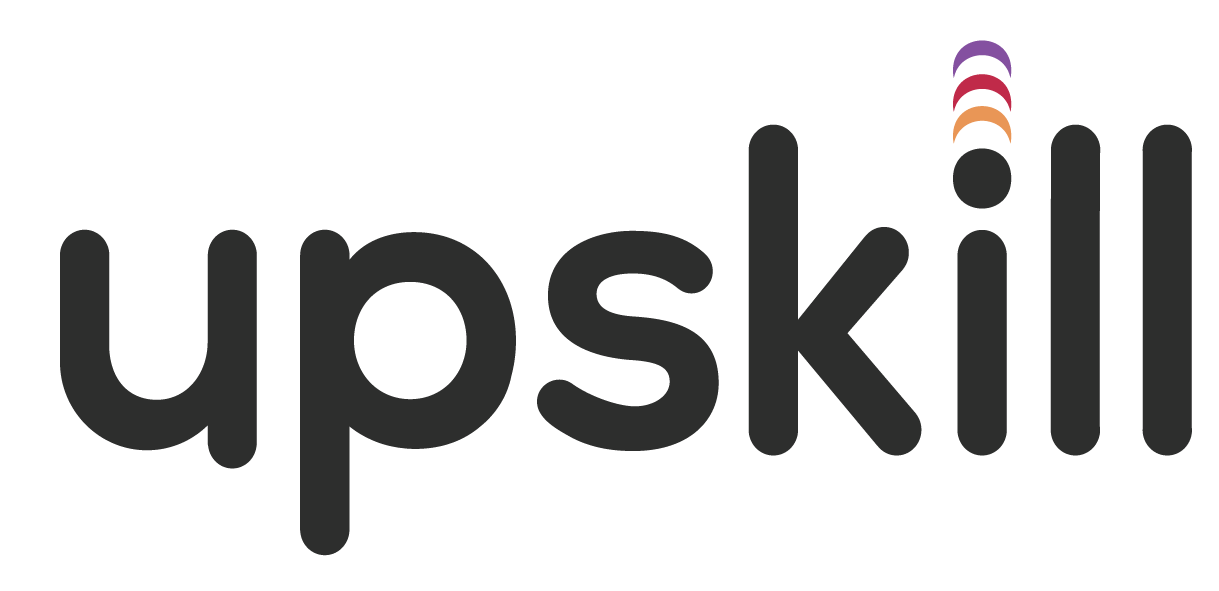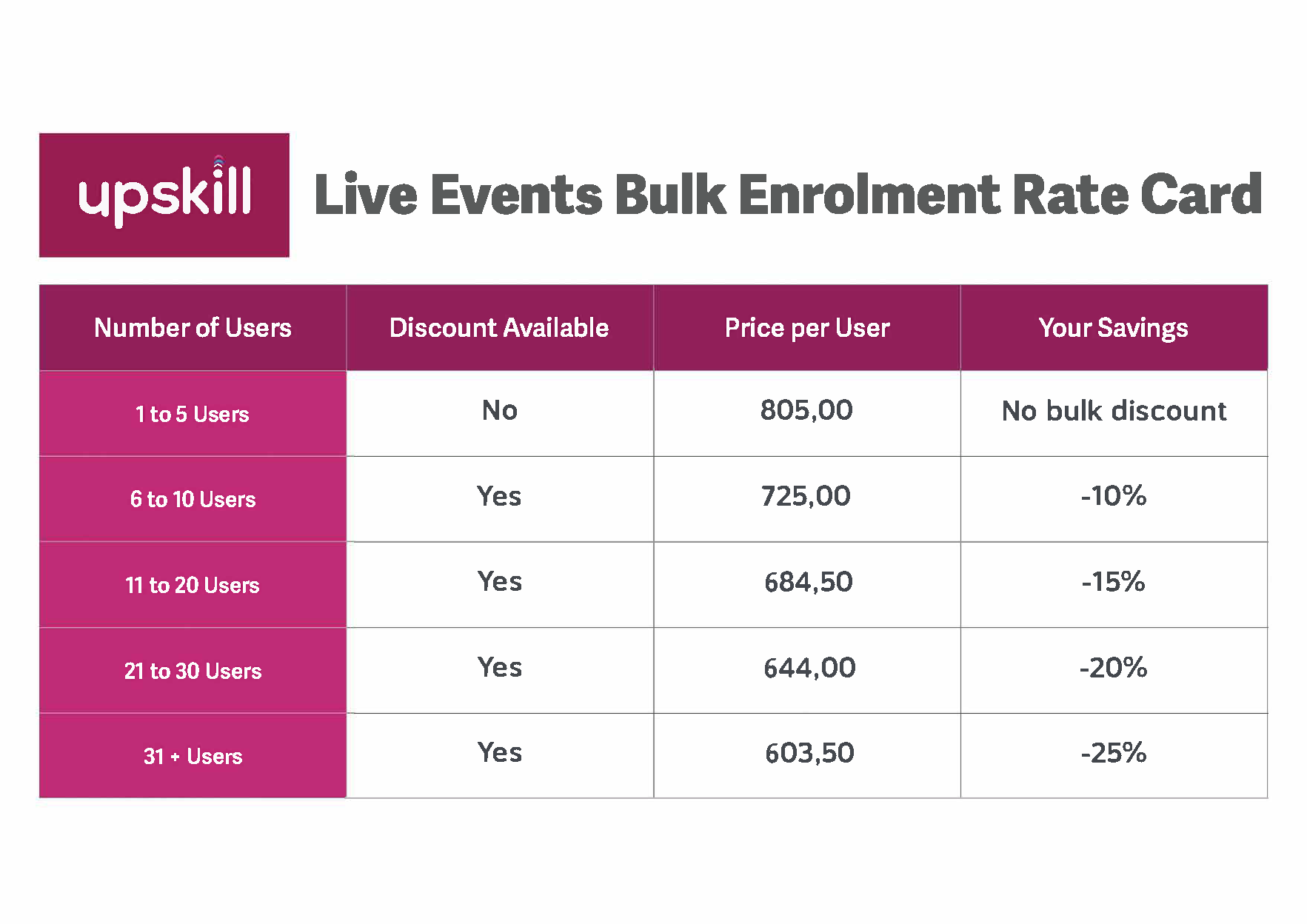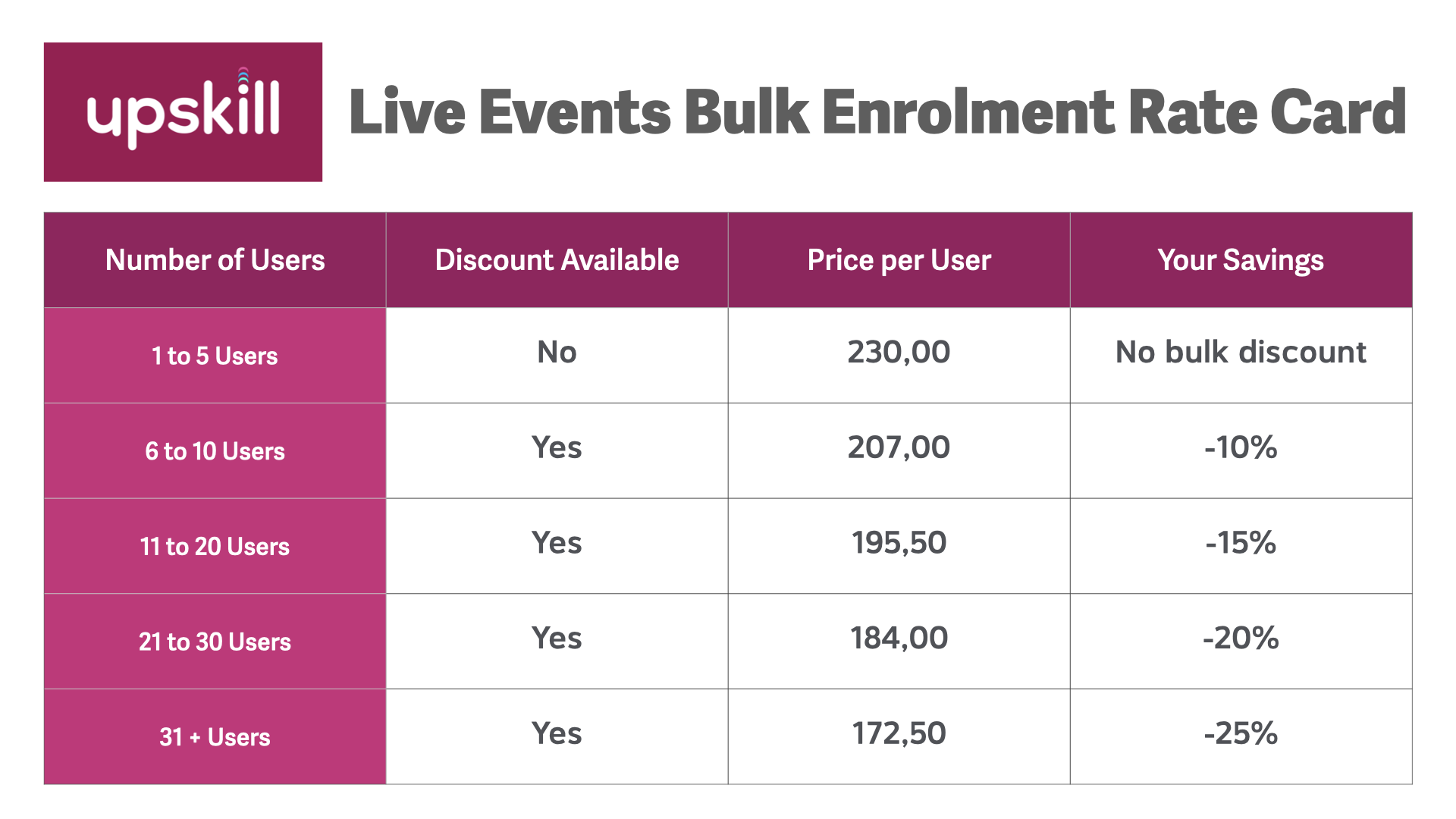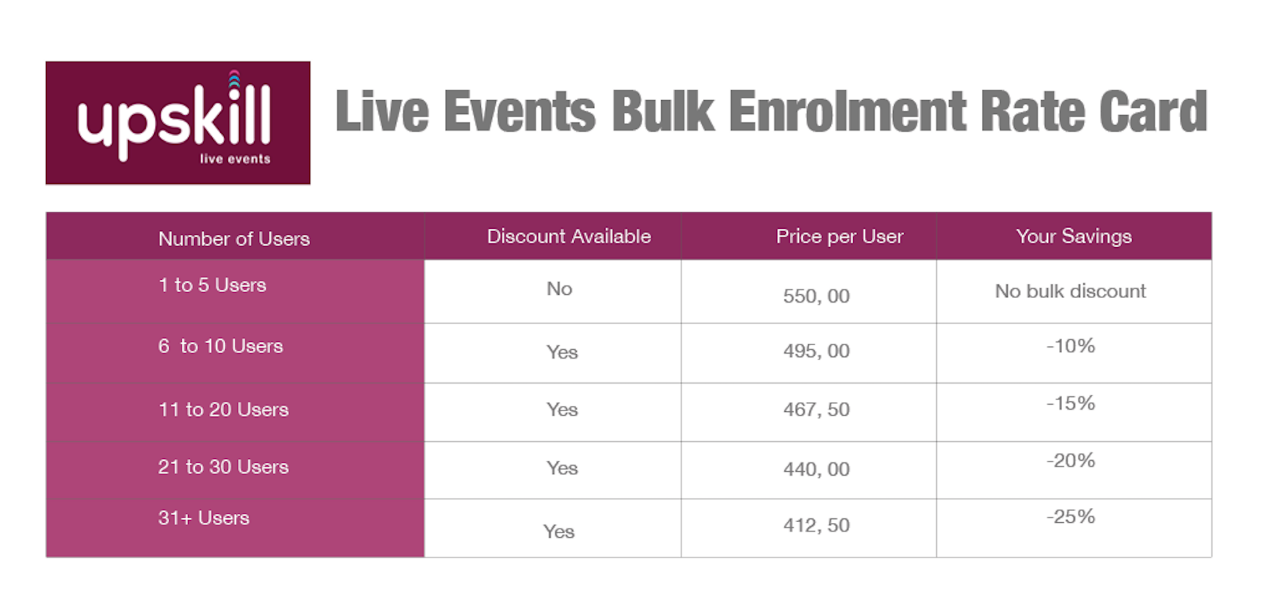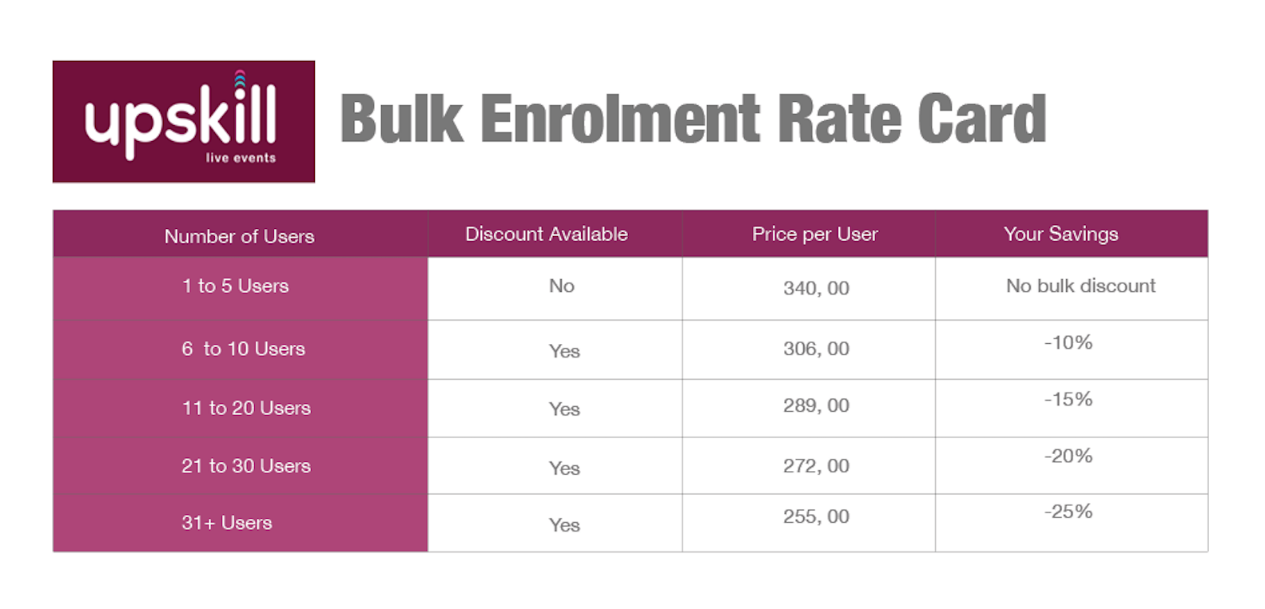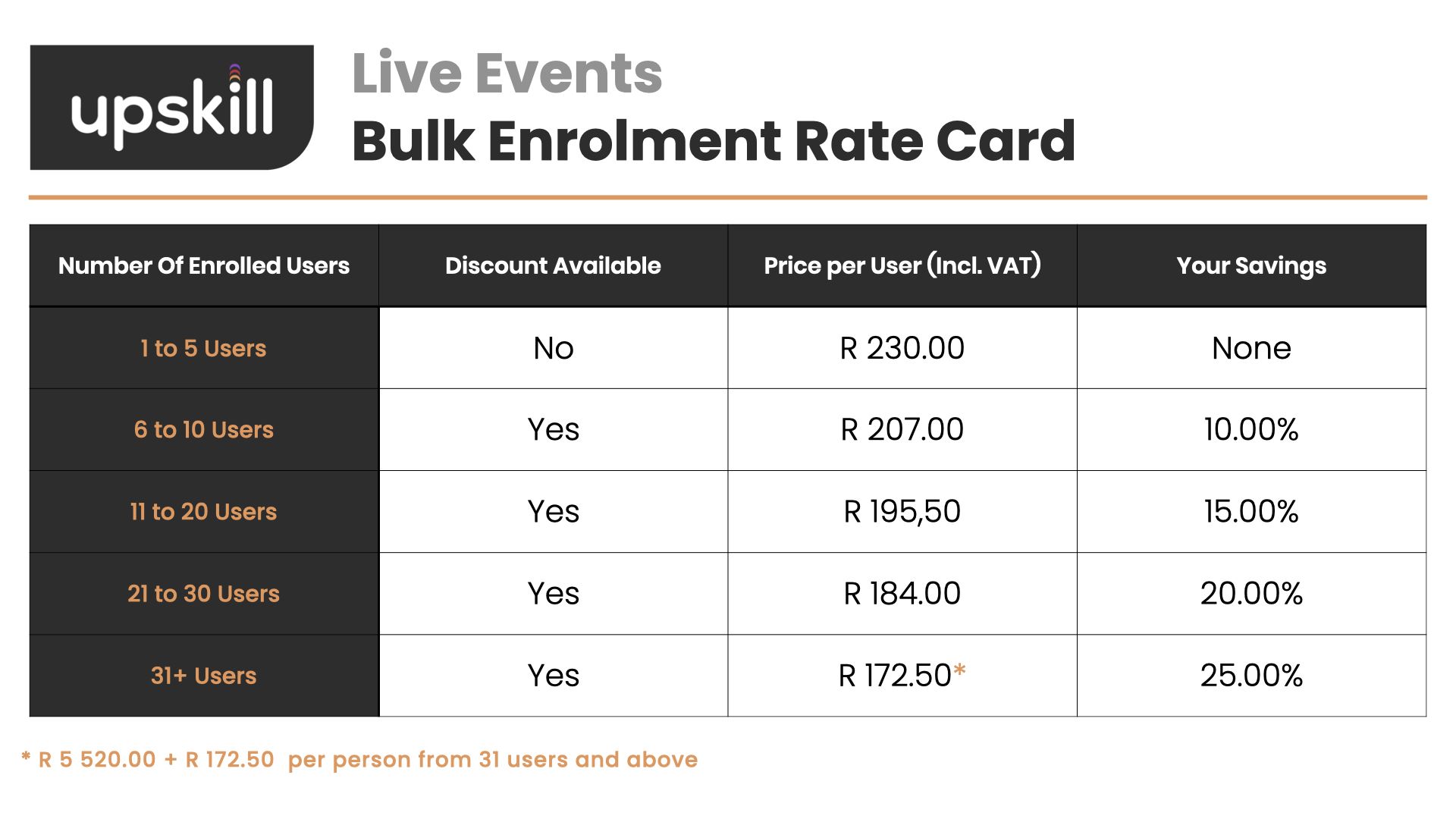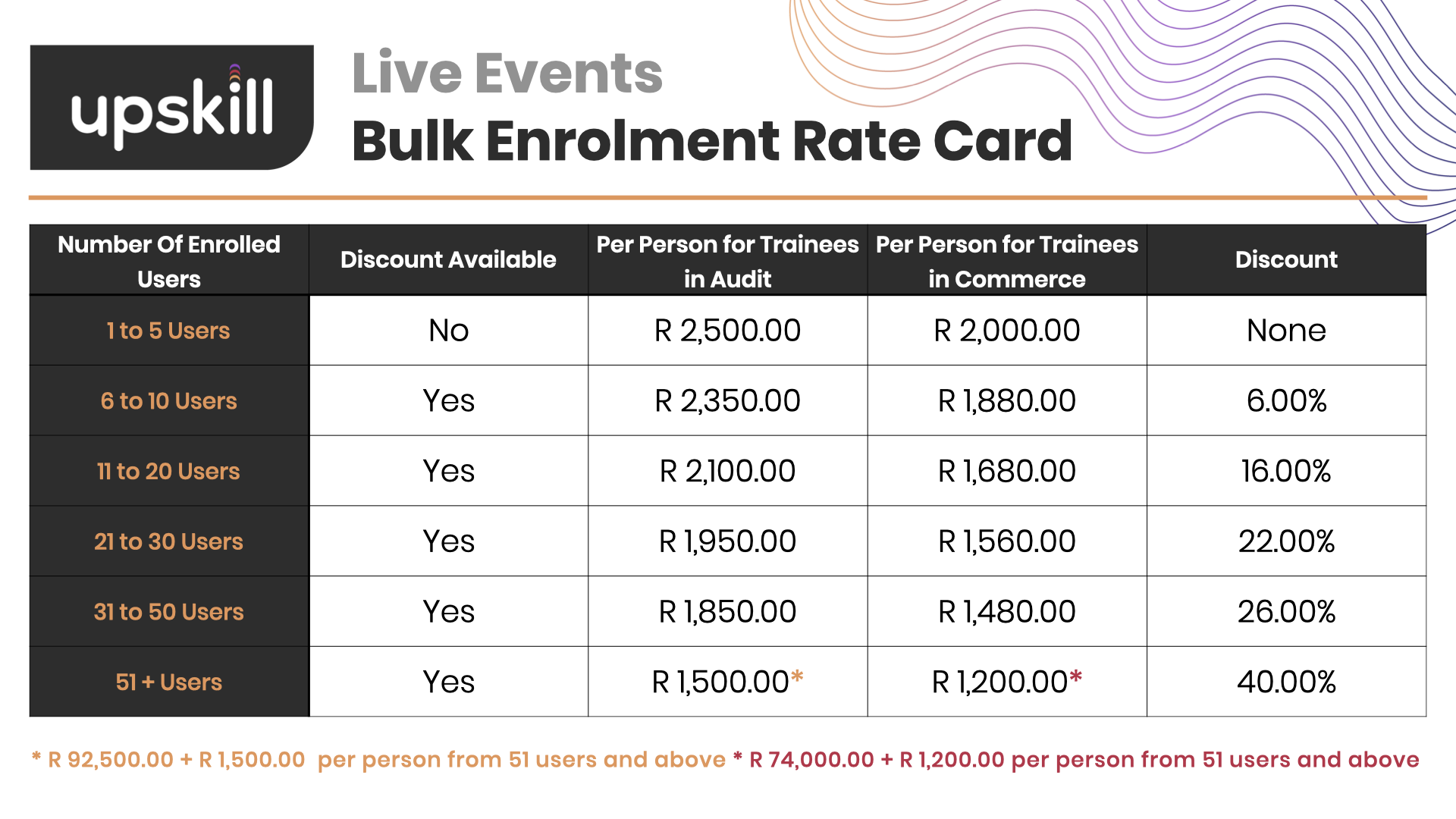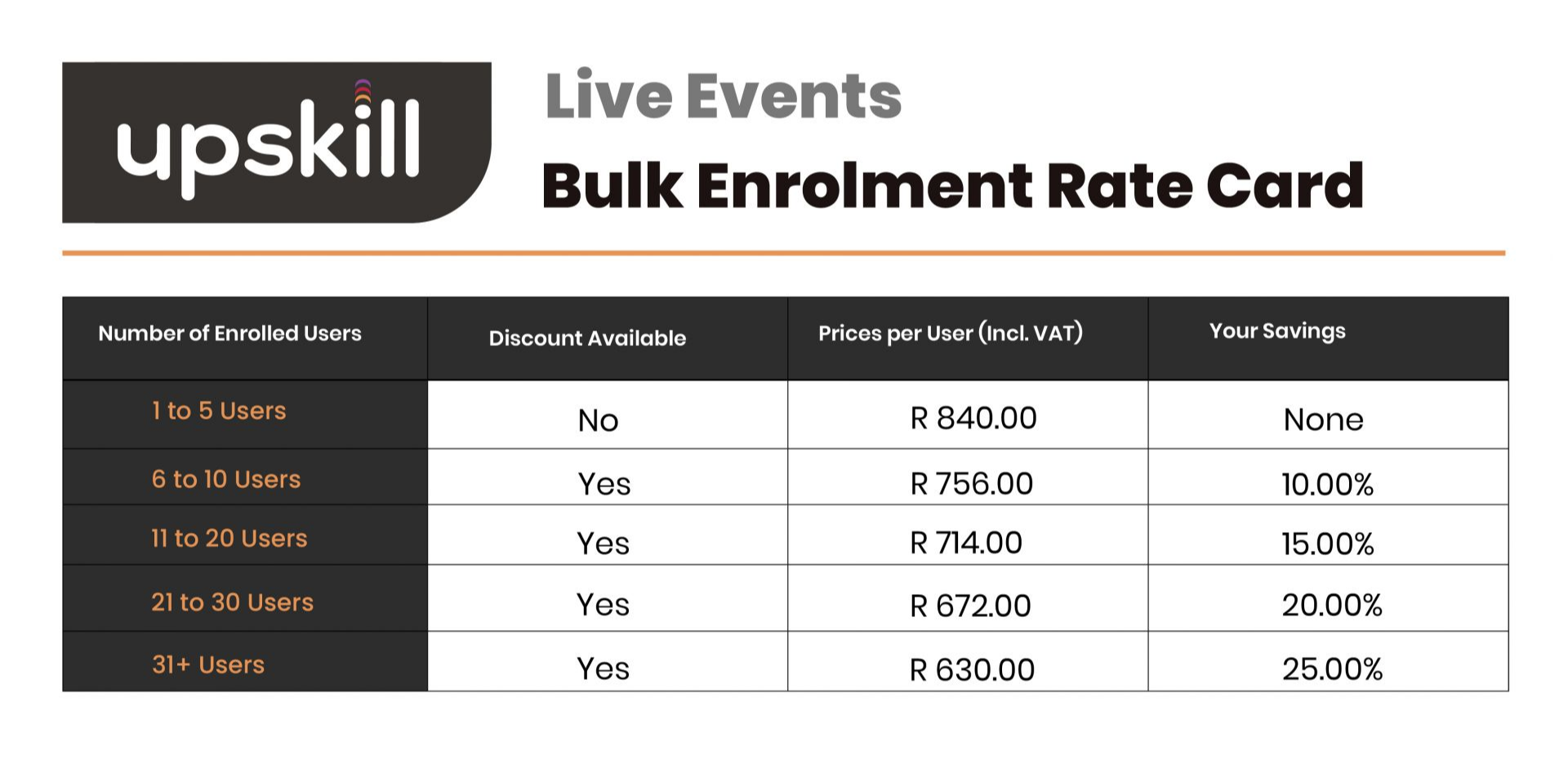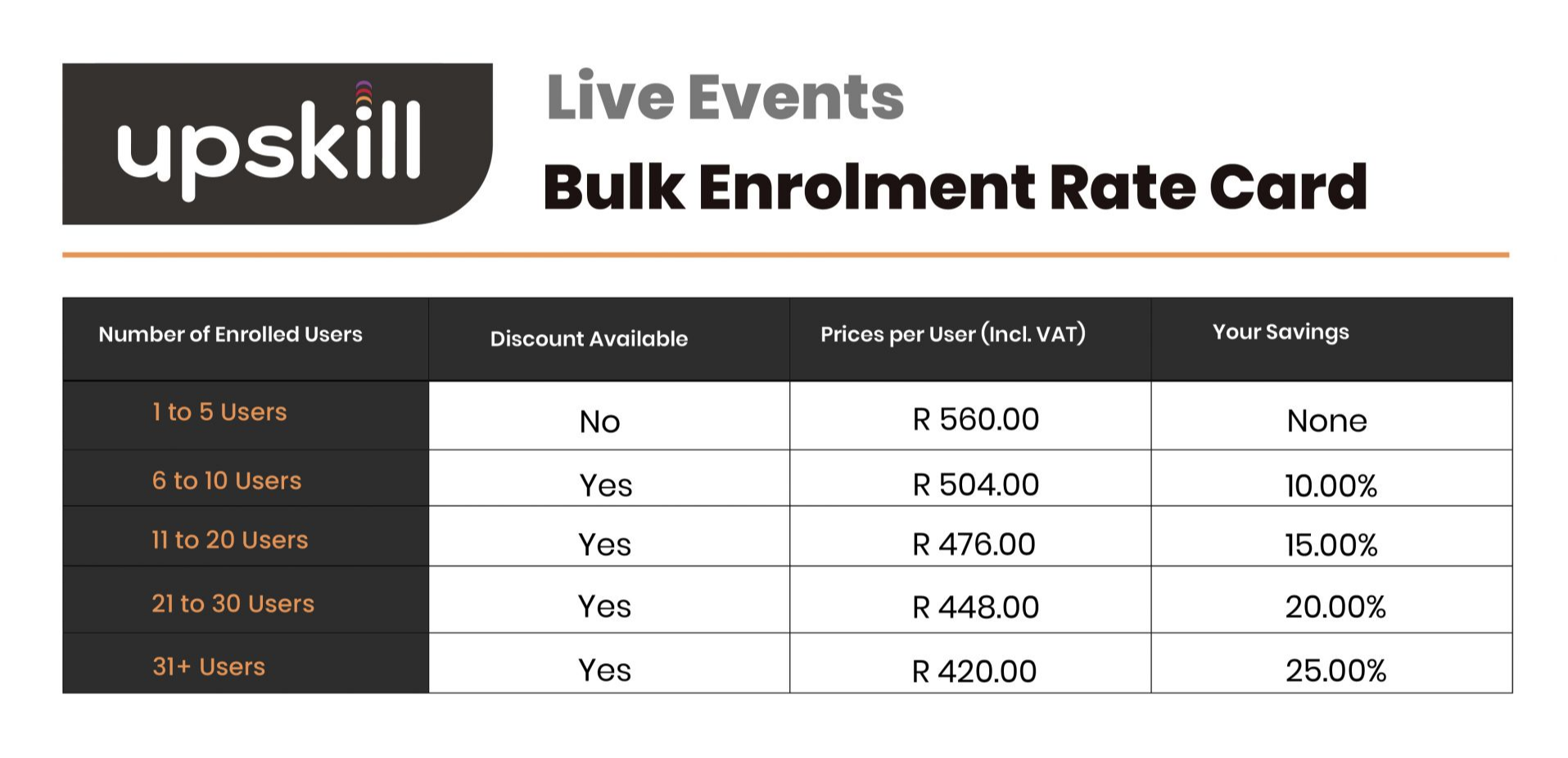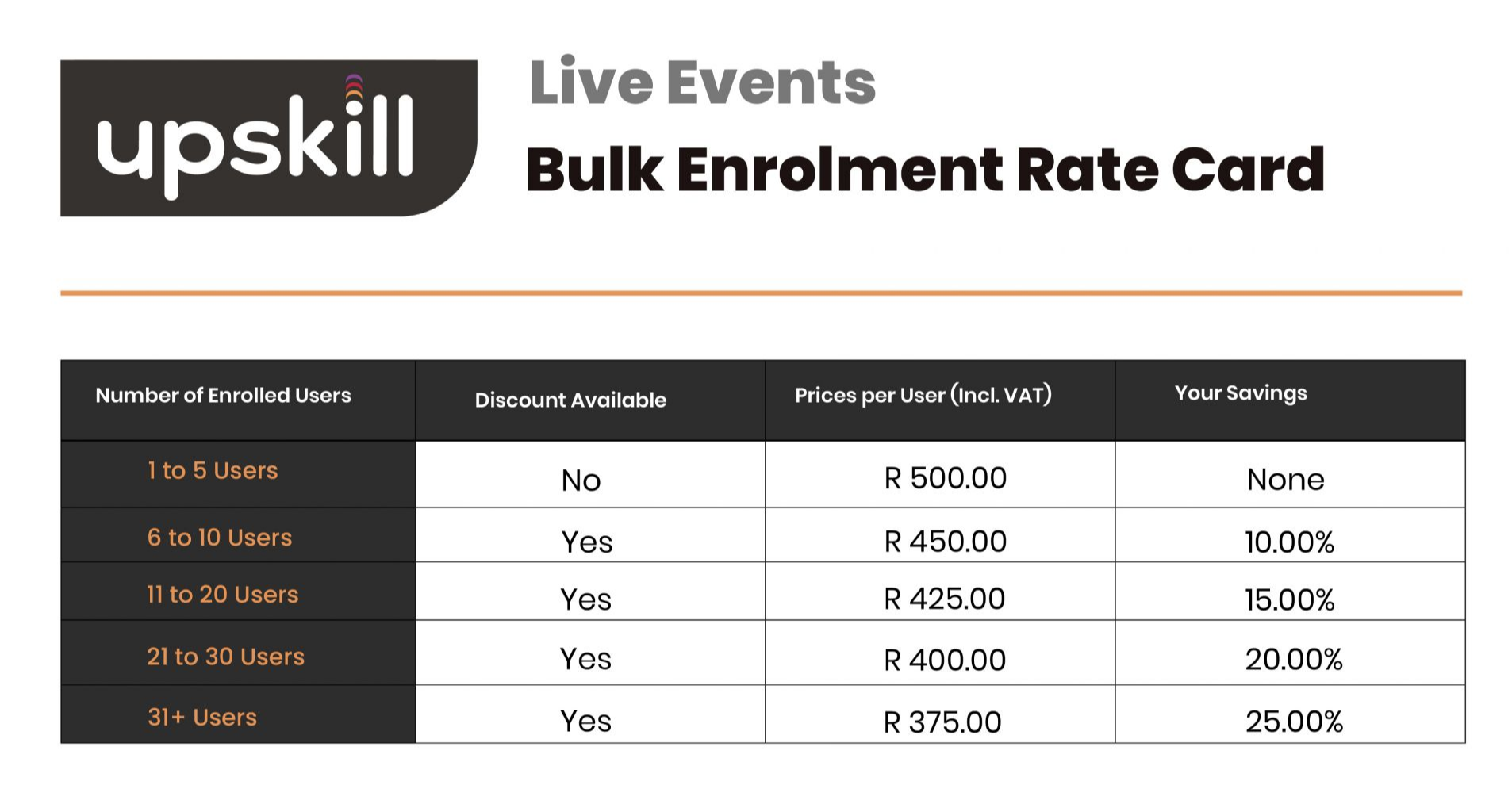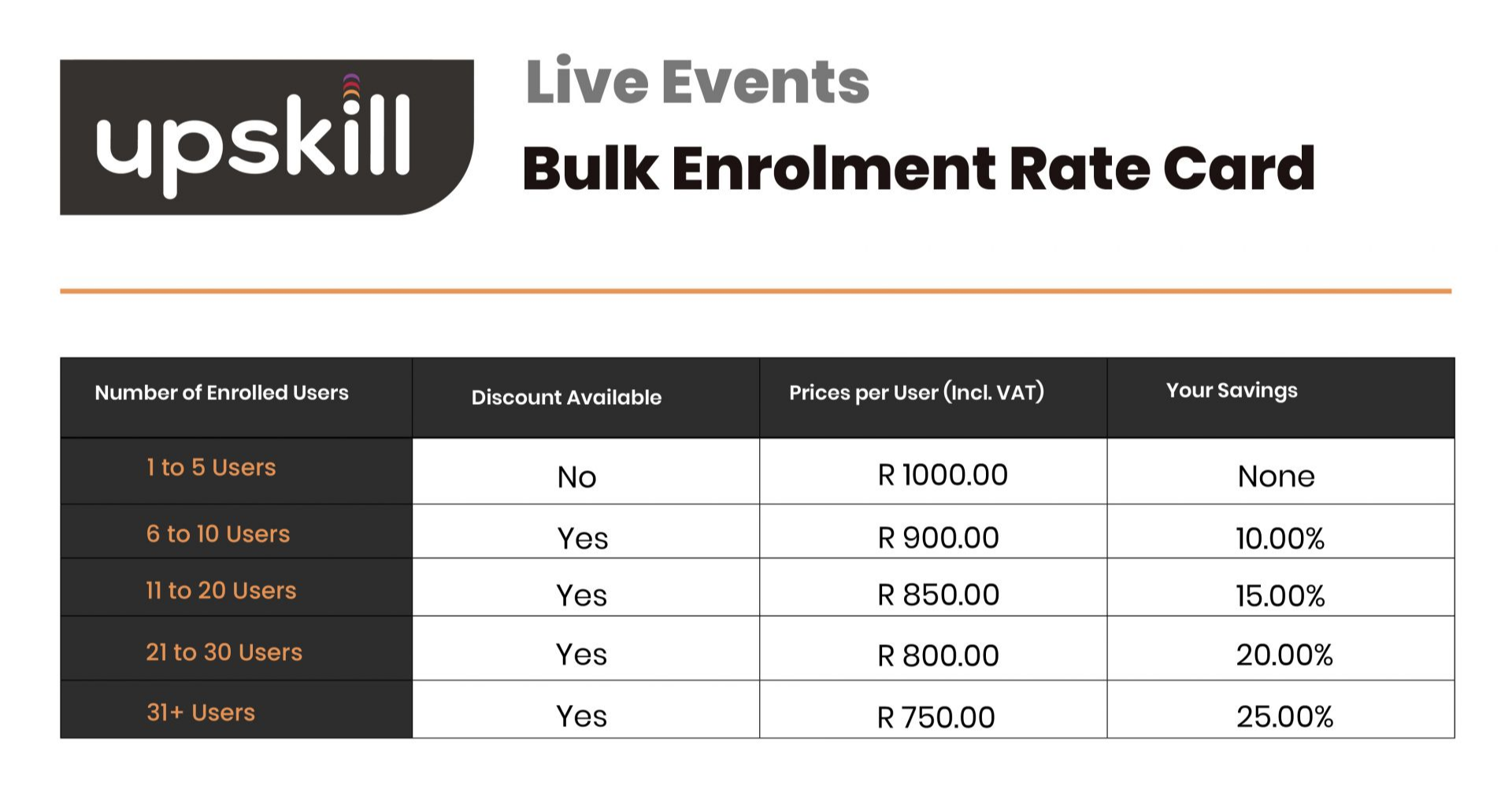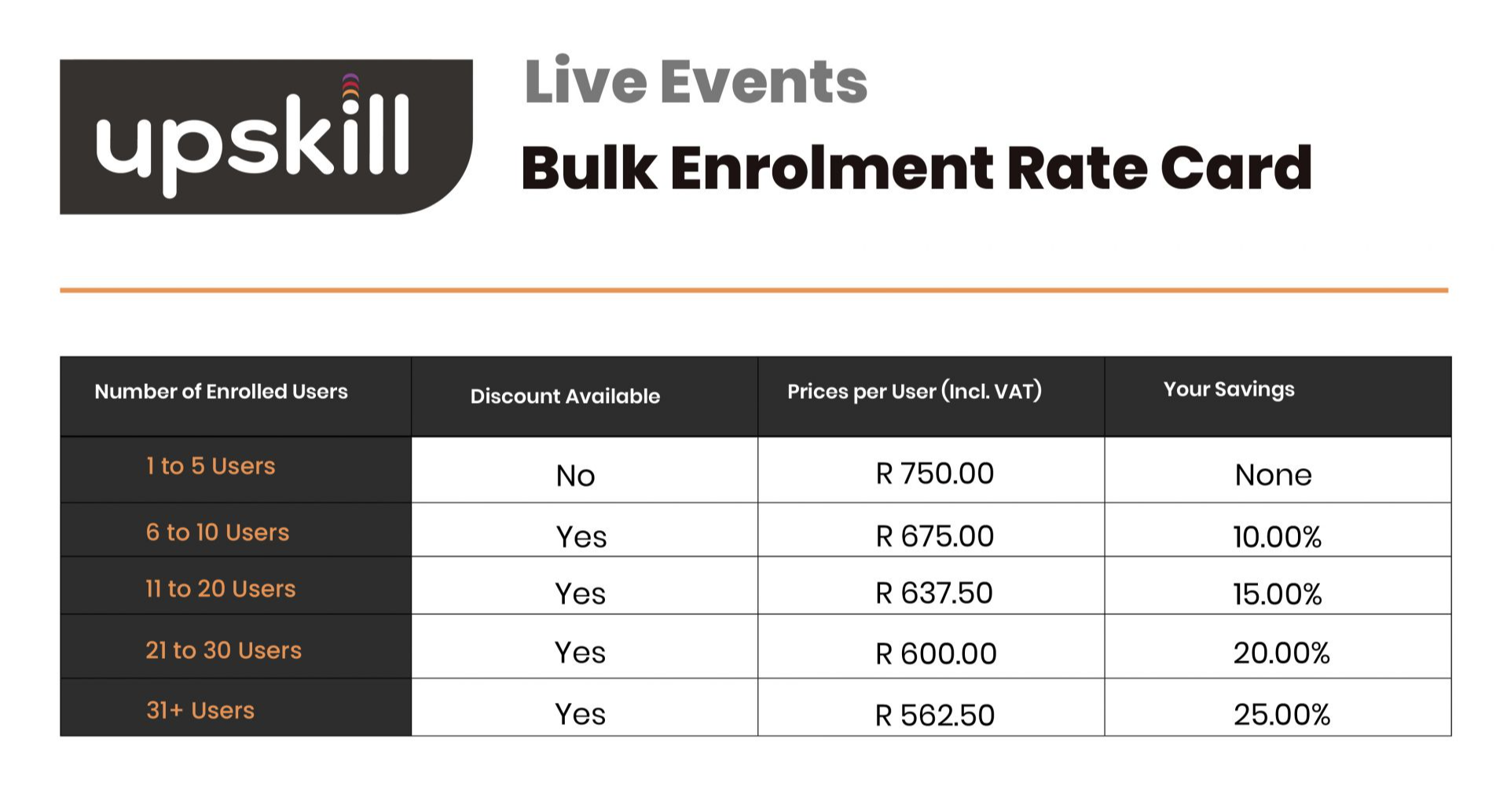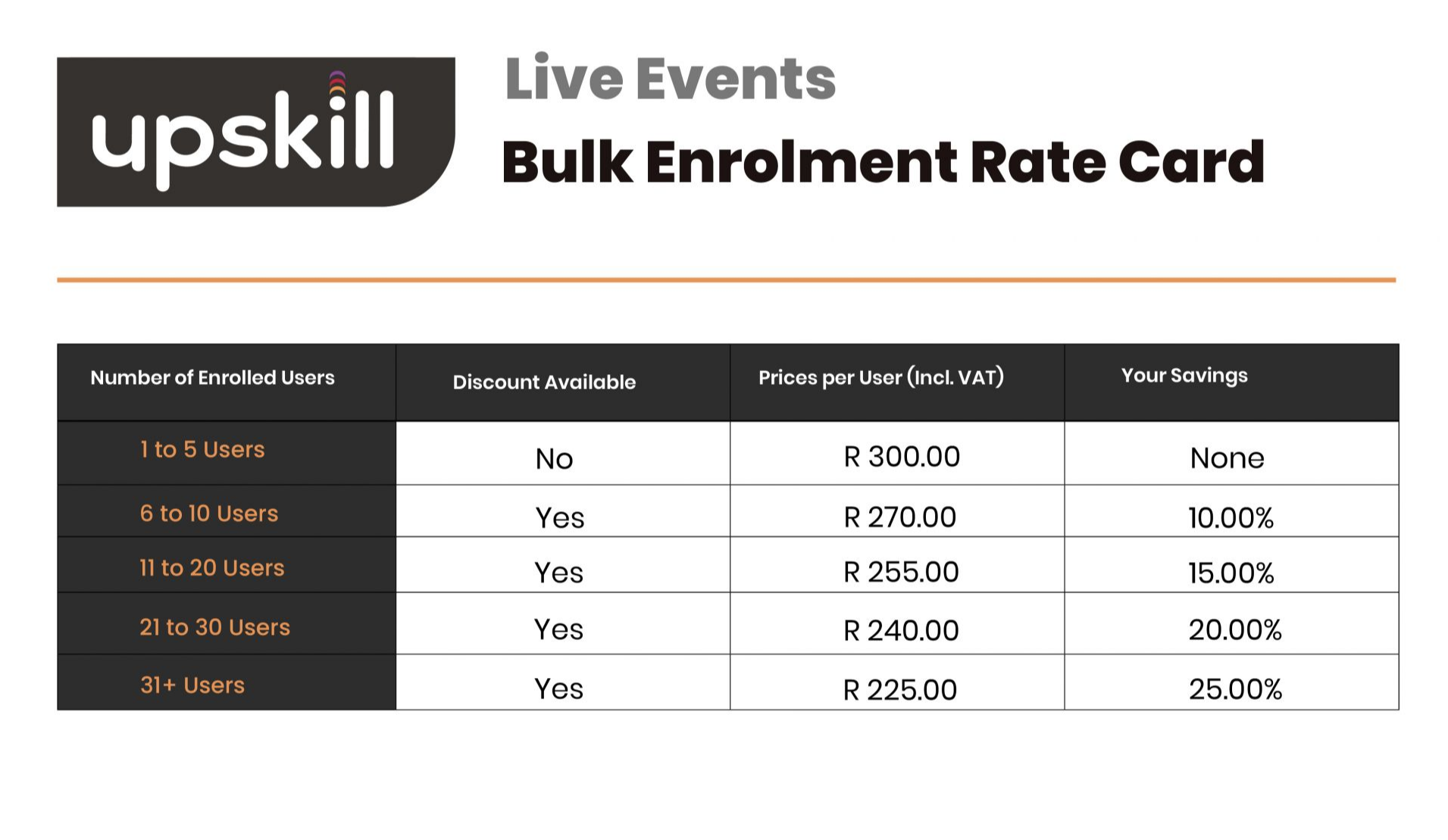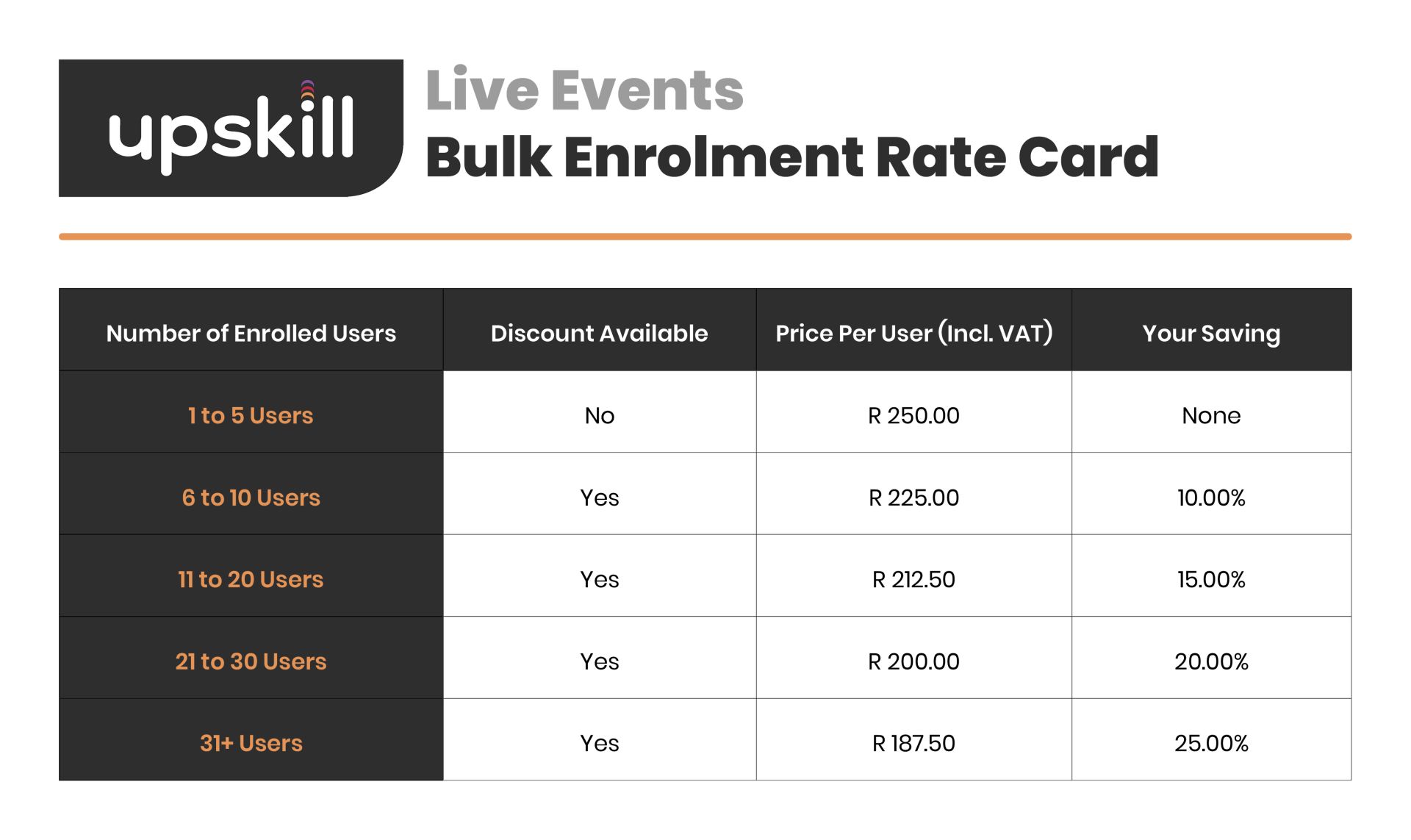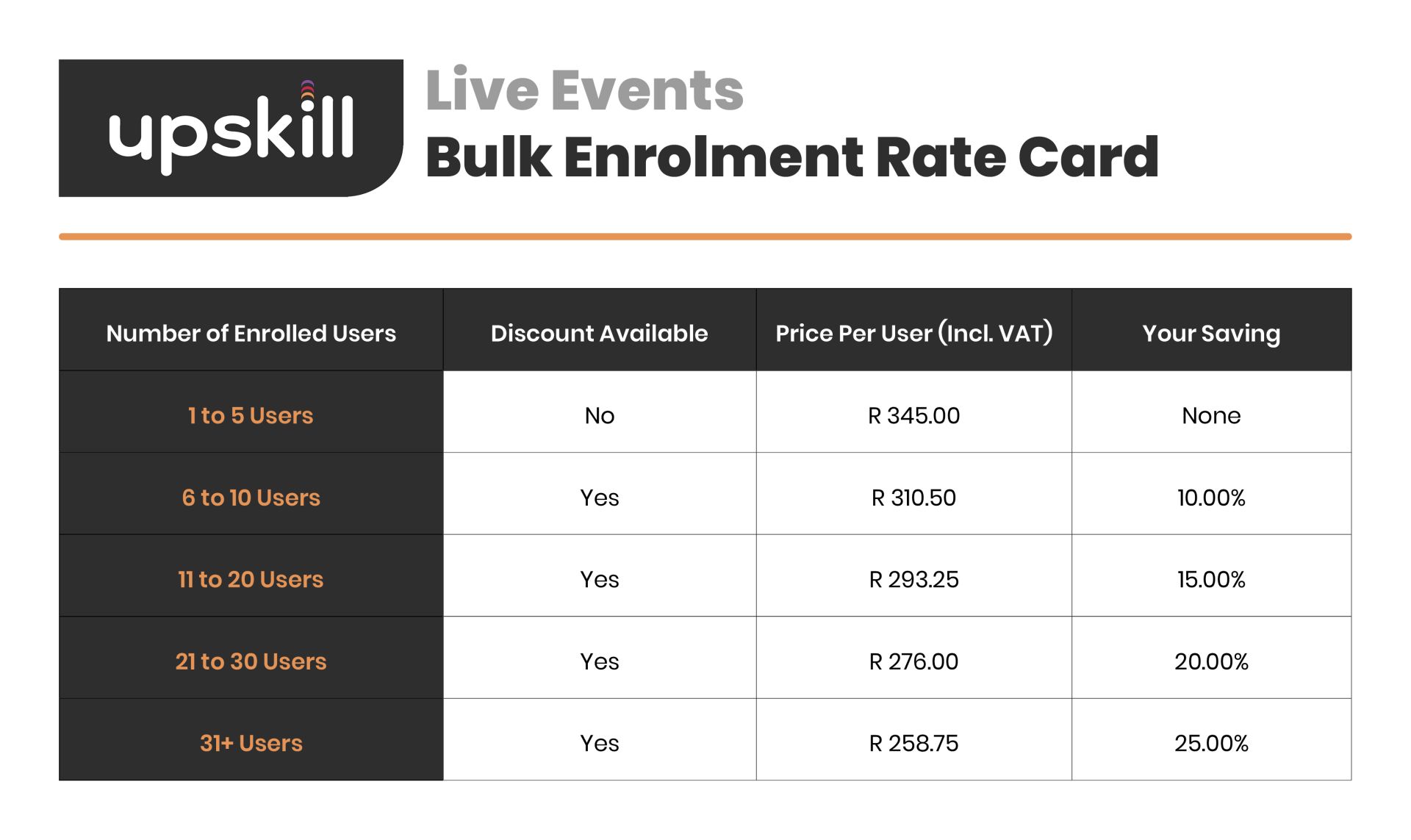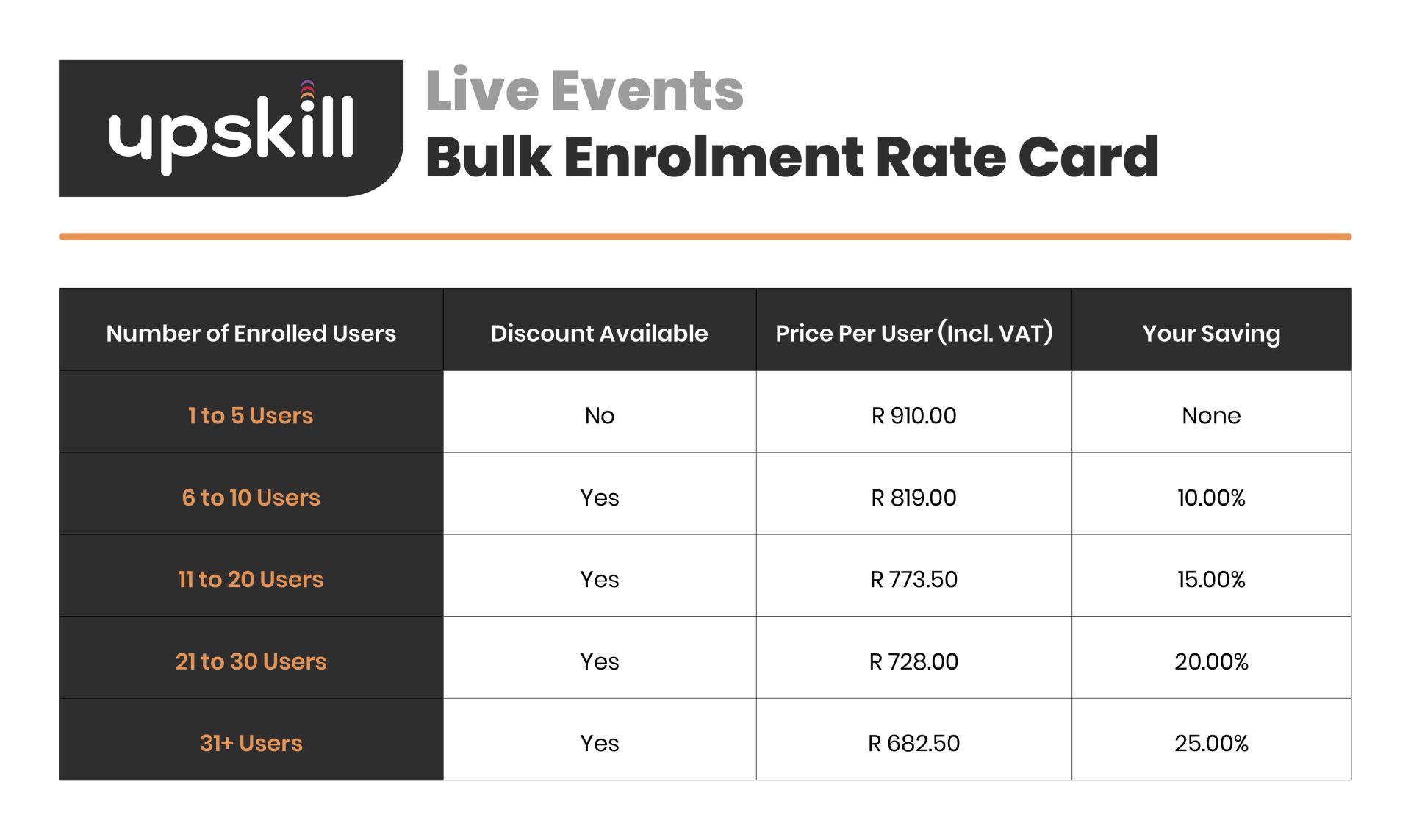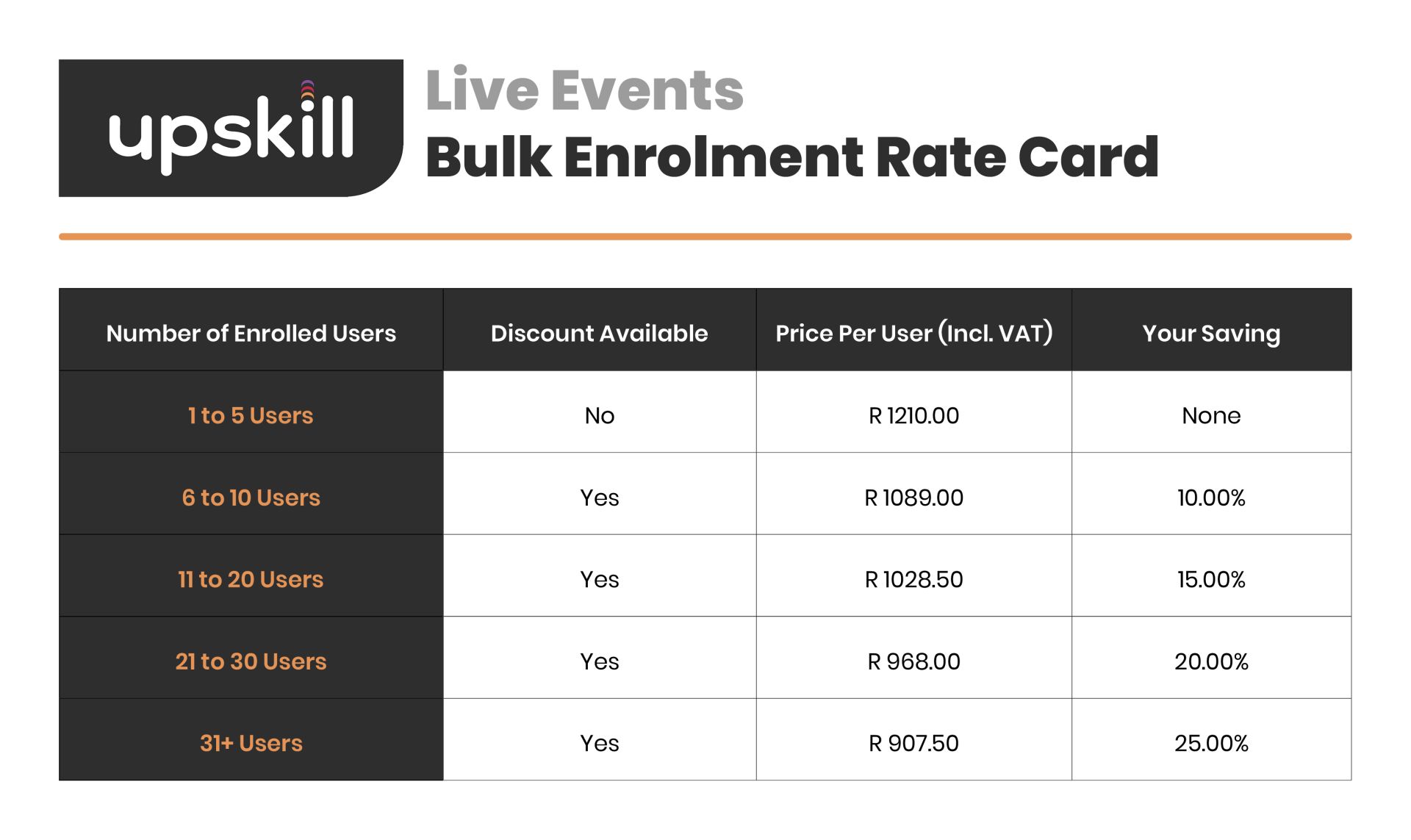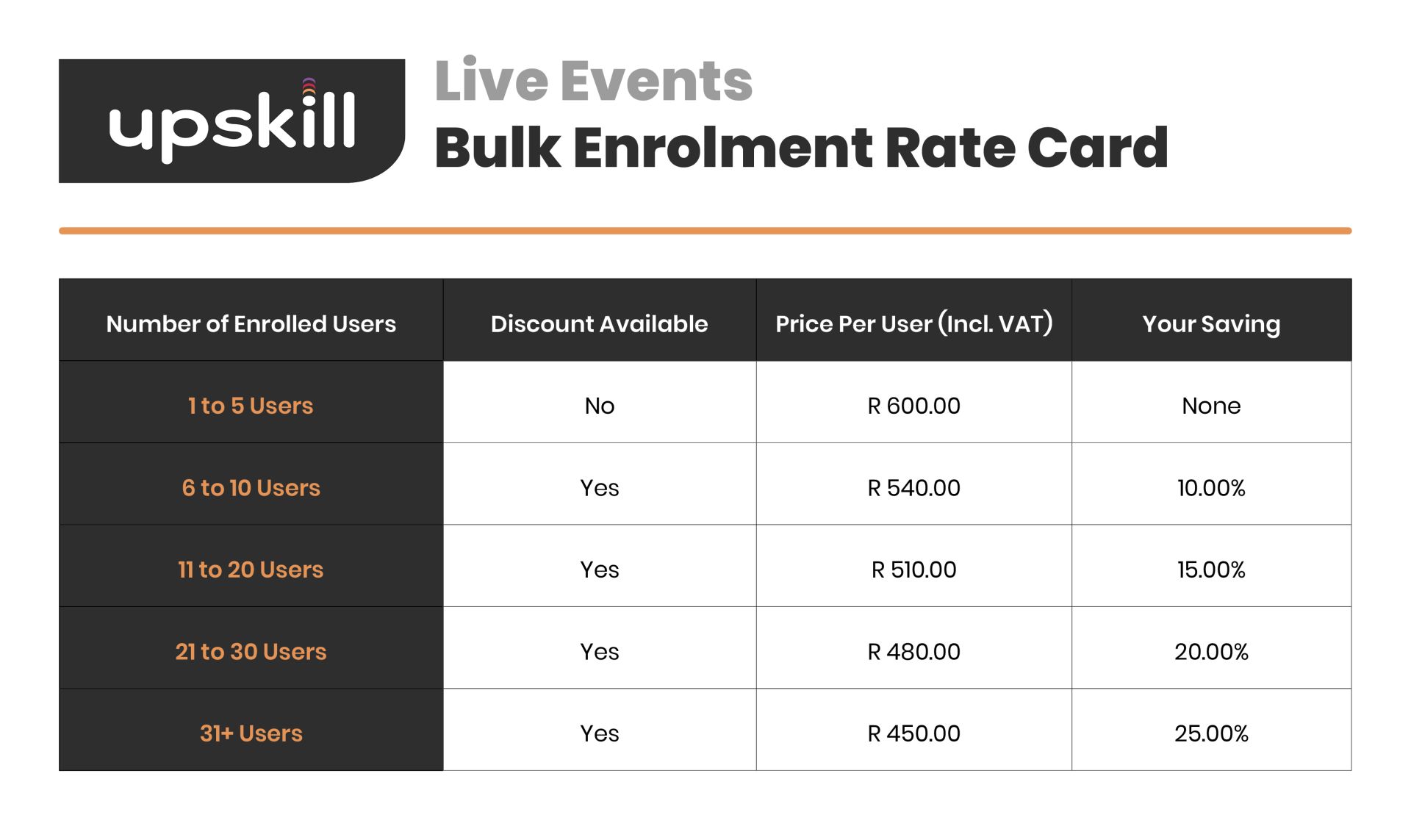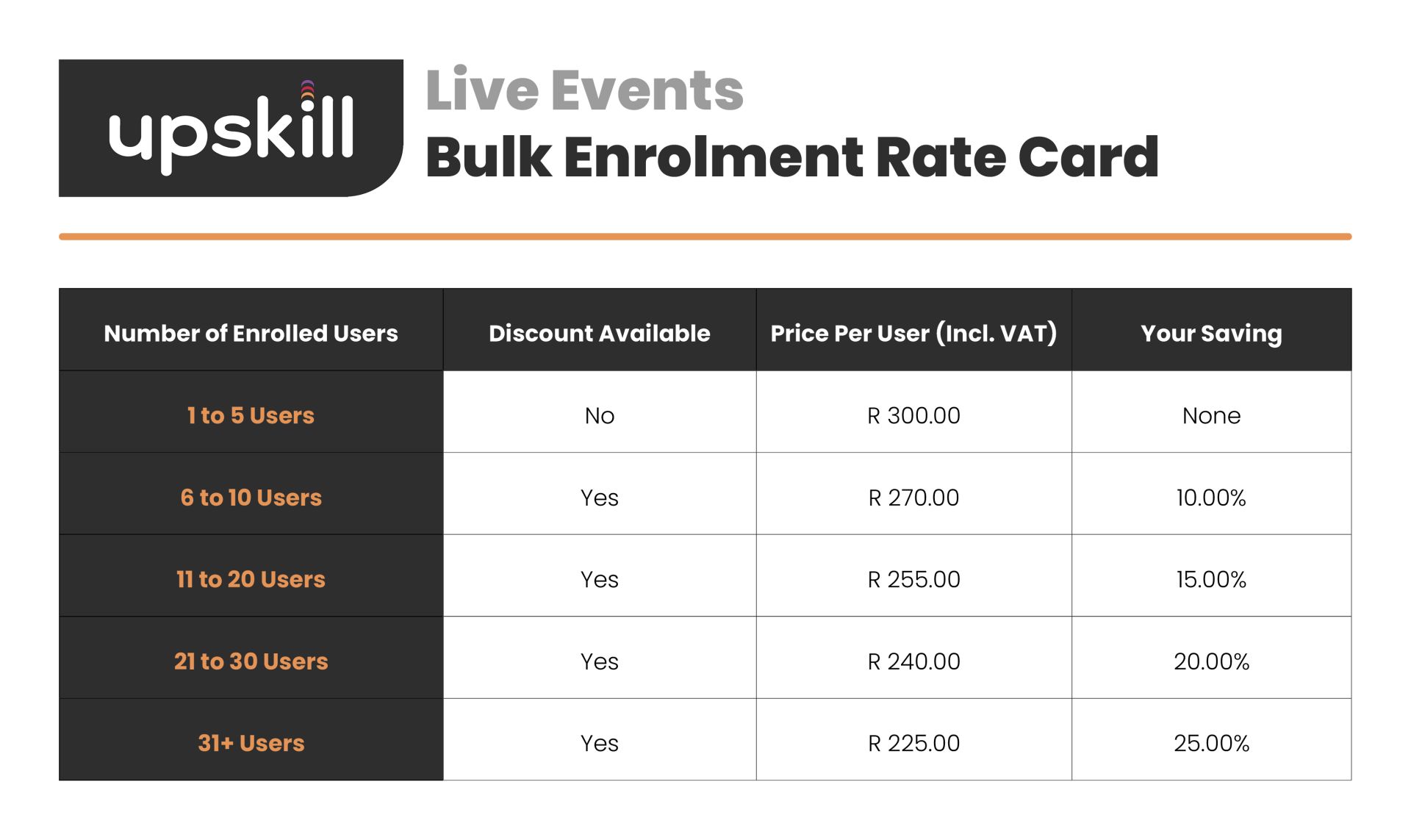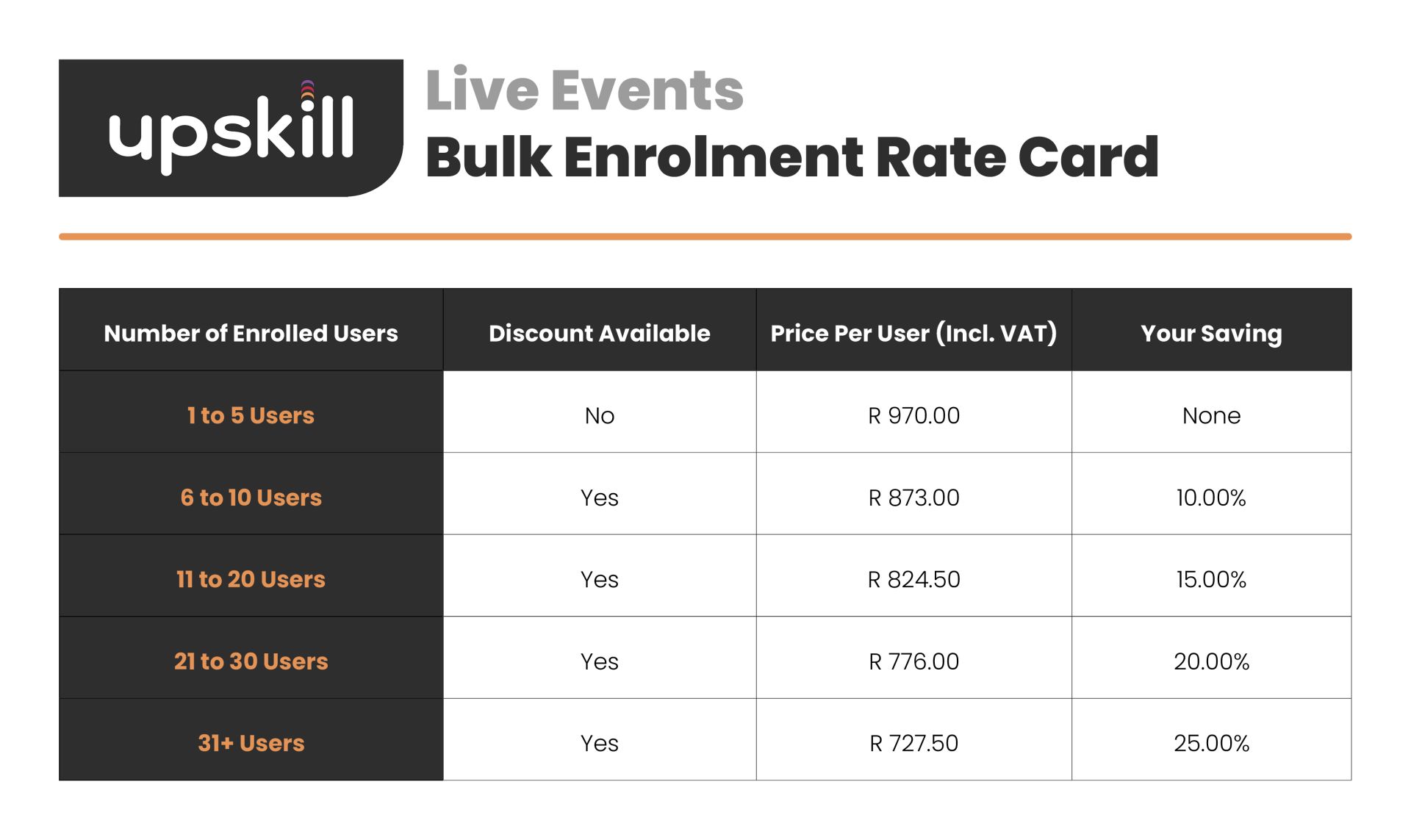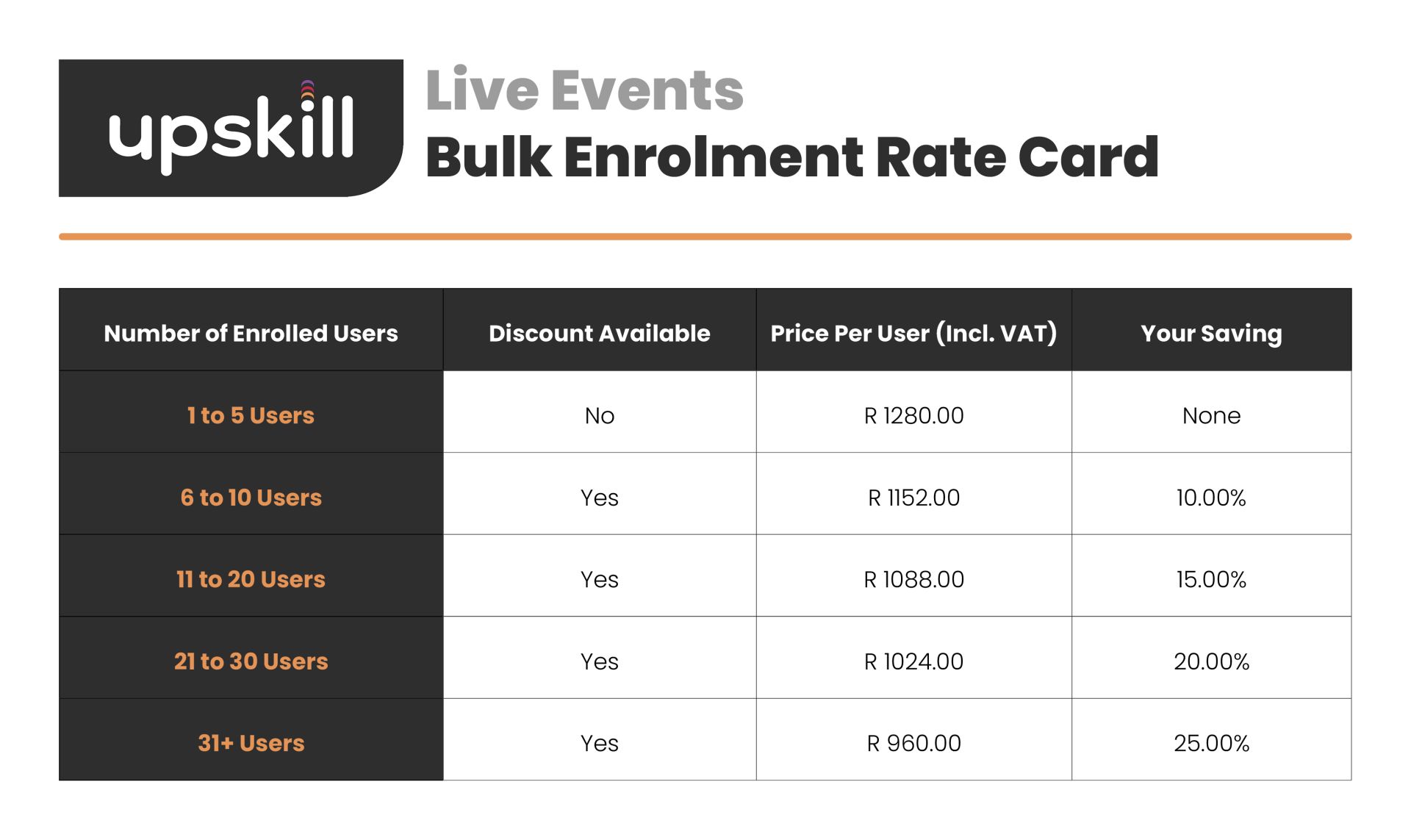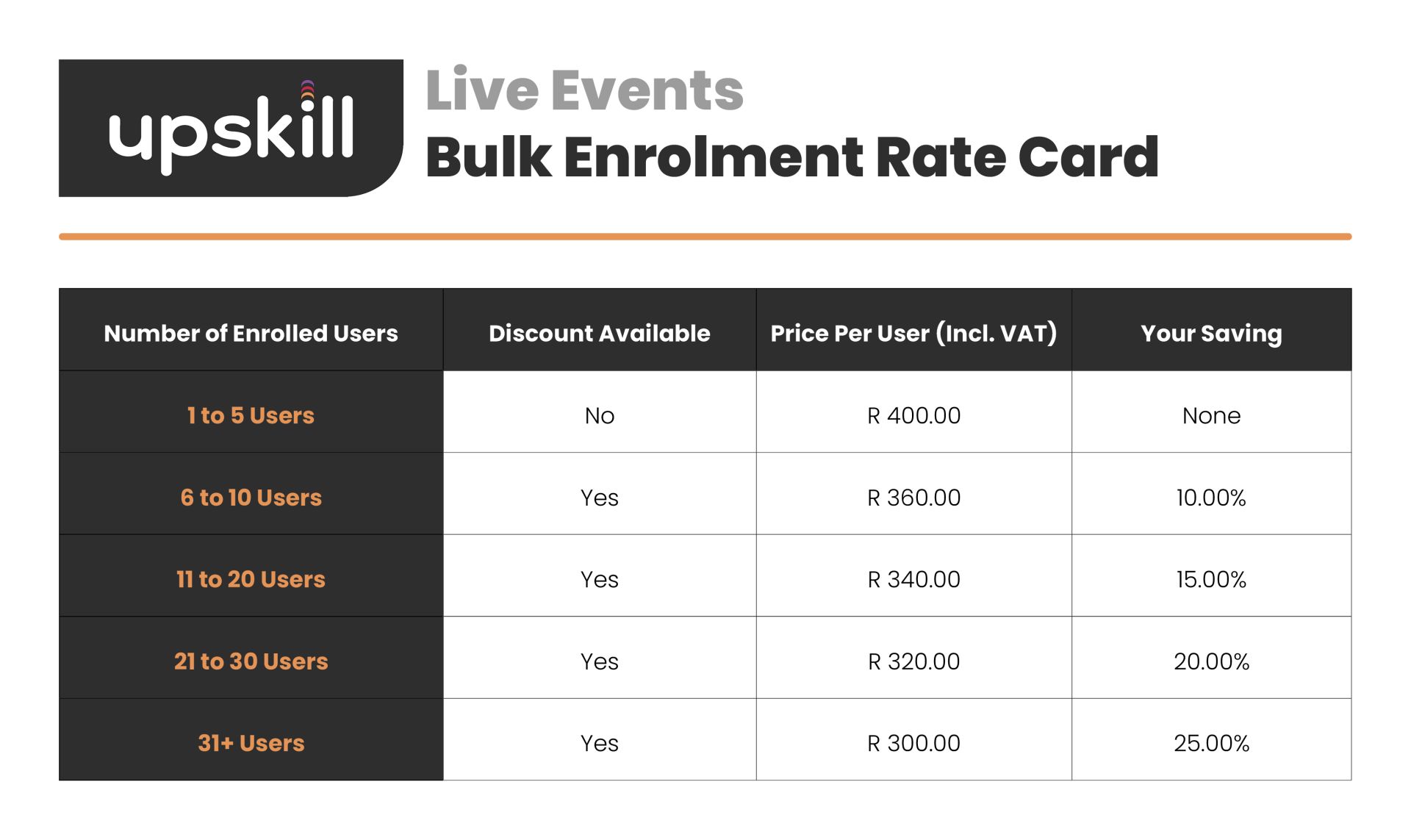Unpacking Carbon Accounting
Let's unpack the key aspects of existing frameworks around carbon accounting
Event hosted by
Roshni Gajjar
-
The outcomes of the live events has been mapped to the following competencies: Reporting fundamentals.
-
The live event is ideal for Continuing Professional Development and where required the necessary CPD accreditation is obtained from the professional body. For more information contact us.
-
We offer bulk registration discounts for group bookings on our live events. Please view our standard group registration rate card here.
The index below represents the structure of the Live Event. You will be able to access the information contained within the index once registered. On the day of the event, you will head over to section 2 below where the Live Event will be streamed.
Roshni Gajjar
Roshni has 20 years’ diverse professional experience in the pharmaceutical, healthcare, financial advisory/assurance, consulting and higher education sectors. Areas of expertise include finance, business strategy, strategy-to-execution projects, risk management, stakeholder relations/communication and ESG corporate strategies. Her ESG work began as a university student representing South Africa at the Rio UNDP Conference on Sustainable Development. Through her consulting career, Roshni has influenced sustainability management strategies in automotives, healthcare, higher education, industrials, precious metals and financial services sectors, where she has assisted clients to shape and steer fit-for-business purpose ESG strategies and CSR initiatives.
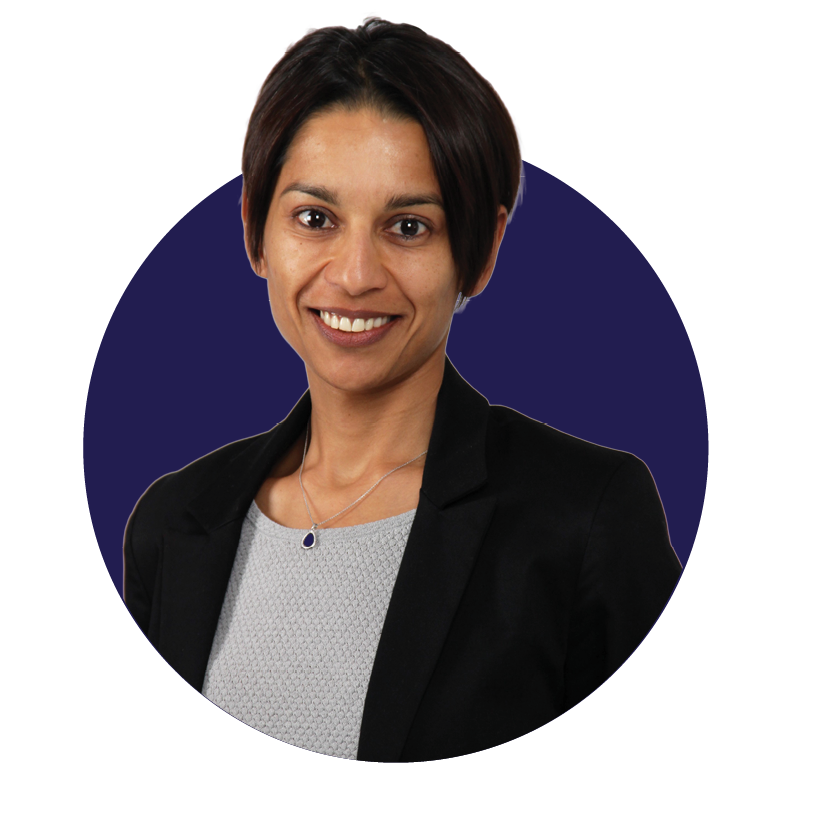
Outcomes
- What is Microsoft office 365?
- Introduction to excel and how you will be using excel as a first year trainee accountant.
- Important excel functions you will use daily.
- What is working papers and how does this work in excel?
Outcomes
- Understanding the financial statement assertions and their relevance in performing audit procedures.
- Understanding the requirements for sufficient appropriate audit evidence to prove the assertions.
Outcomes
- What are professional ethics?
- Why are professional ethics important for you?
- How do you make the right professional choices?
Outcomes
- Why is Cyber security important.
- What can go wrong?
- Email best practices with reference to cyber security.
- What to look out for, how to evaluate authenticity of emails etc.
- Like farming, phishing, click bait, malware.
Outcomes
- Why a personal budget is important?
- How to prepare your budget and what tools are available.
- How to use excel for this.
- Top 3 tips in personal finance!
Outcomes
- Operating within a remote/hybrid work environment internally and with clients.
- What is the change curve and how this relate to your new role as trainee accountant.
- Mastering time management within your new role as trainee accountant - use outlook calendar to your advantage!
- Your health is important – Understand the important of sleep, exercise and brain care.
Outcomes
- Operating within a remote/hybrid work environment internally and with clients.
- What is the change curve and how this relate to your new role as trainee accountant.
- Mastering time management within your new role as trainee accountant-use outlook calendar to your advantage!
- Your health is important –Understand the importance of sleep, exercise and brain care.
Outcomes
- Understanding what audit risk is, and the three components that affect it.
- Understanding the impact of Risk of Material Misstatement on the nature, timing and extent of substantive audit procedures.
Outcomes
- In this master class trainees will touch on professional skills directly linked to developing their relational acumen and Winning with People.
- Communication skills, People skills, Relationship-building skills
Outcomes
- Introduction to Microsoft PowerPoint and Word.
- How to prepare a presentation in PowerPoint.
- How to prepare reports, letters and communications in word in a professional manner.
- .Tips and tricks to be more efficient in Word and PowerPoint.
Outcomes
- Understanding how the CA2025 training programme works.
- Developing the right attitude towards your training contract and the importance of regular reflection during the contract term.
- How assessment works and what to do to ensure that you get signed off at the end of the training contract as proficient.
Outcomes
- In this master class trainees will touch on professional skills directly linked to developing their relational acumen and managing people.
- Leadership skills, Managing others, Teamwork
Outcomes
- What are business ethics?
- Why is understanding business ethics important for you?
- How do you evaluate the right business choices?
Outcomes
- What is emotional intelligence?
- Understand and manage your emotions.
- Understand the emotions of others working with you.
- How to get your emotions to work for you,not against you.
Outcomes
- Understand the importance of effective communication in the workplace (written and verbal).
- Introduction to business writing for first year trainee accountants (including email etiquette).
- How to use Microsoft Outlook and draft professional business emails.
- How to use a translator if English is not your first language.
Outcomes
- What are personal ethics?
- Why are personal ethics important for you?
- How do you make the right personal choices?
Outcomes
- Why are audits conducted?
- What happens when auditors get it wrong?
- How are audits conducted?
- Where do I fit in this process?
- What is expected of me during the first year?
Dave Loxton
Lizette Volkwyn
Dr Jerry Chetty
Qualifications
Jerry has a PhD in Criminology, a LLM, LLB, BIuris, ND: Police Administration, Diploma in Victimology, Certificate in Anti-Money Laundering.
Professional membership
Jerry is:
- An Admitted Advocate of the High Court
- Chairperson of the Institute of Commercial Forensic Practitioners
- Forensic Practitioner (SA)
- Certified Fraud Examine
- Certified Ethics Officer
Annemari Krügel
Qualifications
- B. Iuris Labour Law and Human Rights
- M.Phil. Labour and Workplace Law
- Certified Fraud Examiner (CFE)
Advocate Stefanie Fick
WIlliam (Willie)Andrew Hofmeyr
Nico Theron
- Affiliate member of ACFE (Association of Certified Fraud Examiners – South African Chapter)
- An accomplished Certified Fraud Examiner.
- Member of IAFCI (International Association of Financial Crime Investigators
Keeran Madhav
Keeran is currently the director at Mazars Forensic Services in Johannesburg responsible for all forensic matters including dispute advisory.
Keeran has successfully performed a number of high profile fraud and/or corruption investigations and has also developed, implemented and monitored Fraud Risk Management Plans/Strategies for clients in the public and private sector.
Keeran is currently the Chairperson of the International Association of Financial Crime Investigators Conference Committee
EAT On-boarding process
- Demonstration on how to activate the profile on SAICA’s EAT
- Demonstration on how to upload and finalise the training plan which comprises of the Integrated Exposure Plan and Expected Levels of Proficiency (This is based on the assumption that the training plan template is completed correctly by the training office – additional assistance available on request. The additional time investment required where applicable)
- Demonstration on how to onboard trainees via TCMS onto the EAT
- Demonstration on how to allocate a trainee to a training contract and sending the official EAT invitation to the trainee.
- Demonstration on how to add users other than trainees to the platform and how to allocate roles
- Demonstration on how to monitor compliance on the platform.
Outcomes
- Be aware of what can cause you to not be ethical;
- Understand tools that help you to remain ethical when faced with complex scenarios;
- Gain insight into the process to follow that guides your ethical decision-making.
SAICA's Electronic Assessment Tool
- Practical tutorial on how to submit summative assessments/PDSs with specific focus on the role of the trainee and the role of the evaluator and/or assessor. Includes examples as part of the session.
- Demonstration of what the quality of the evidence submitted by the trainee must look like.
Steven Powell
Zakhona Mvelase
Ivan Breedt
Stompie (L.A.) Ferreira
- Completed all required Intelligence, Counter intelligence, Surveillance, Counter Surveillance and Military Lawcourses.
- Studied Business Management with UNISA.
- Obtained a Technical Certification (CumLaude).
- Is a member of IAFCI.
- Is a Certified Fraud Examiner.
- Member of IRMSA.
Dividends, Liquidations and Share buybacks
-
Distribution of a dividend (including a dividend in specie)
-
Distribution of non-dividends – repayment of contributed tax capital
-
Share buybacks- listed and non-listed companies
-
Liquidation distributions
-
Share dealers vs share investors
-
Deferral of CGT consequences in a profit facilitated sale of shares
-
Conversion of shareholder loans
-
Issue of shares as consideration for assets
-
Corporate Financiers and persons involved in financial planning and advisory services
-
Tax Specialists
-
Practicing Accountants and Lawyers
-
In-house Tax Managers and Advisors
-
Financial Directors, Managers and Business owners
Key highlights
- Unveiling the Power of Power BI
- Unlocking Your Hidden Business Opportunities
- Making Better Decisions using Daily Dashboards
